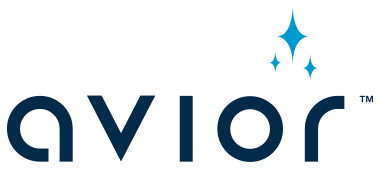As a leader in the RIA industry, you are likely always looking for ways to stay ahead of the curve and navigate the constantly evolving landscape. Issues such as remote work, compensation incentives and differentiating themselves in a crowded market have become crucial for RIAs in 2023.
The Remote Revolution
80% of large advisory firms reported that the majority of their firm worked remotely at least part of the time, according to a report released by DeVoe & Co.
At the same time, training seems to be in short supply.
DeVoe found that half of the advisory firms surveyed had either no structure or lightly structured training programs for junior employees and 70% did not have any formal mentorship programs.
Although it is possible that these two trends are related, they both point to the need to have better talent management at RIAs. RIAs that are looking to future-proof themselves will develop robust hybrid work policies that allow them to leverage their spread-out workforce. The best ones will find a way to mentor and train their leaders in this new format.
Compensation Strategies and Performance Metrics
Recent events have also highlighted the need for a more comprehensive understanding of how firms are compensating their employees.
As firms grow, they generally add a new role for every $350K in revenue. These jobs are typically dedicated client service team roles, specialized roles, and executive management positions.
However, having a compelling offer is more important than ever. Compensation is still the number one priority for top candidates, and RIAs are getting creative.
For example, according to one survey, over 74% percent of RIAs have adopted a combination of base salary plus bonus or performance-based incentive compensation. This suggests that there is still much work to be done in terms of developing comprehensive performance metrics and compensation strategies that align with corporate objectives.
The RIA industry is also highly competitive, with many firms vying for the same pool of clients. RIA leaders must find ways to differentiate their firms and attract new business in a crowded market.
Niche Specialization Is Becoming More Normal
The RIA industry is becoming increasingly specialized, with many firms focusing on serving specific niches such as high net worth individuals, millennials, or socially responsible investing. This presents opportunities for wealth management leaders to differentiate their firms and target specific client segments.
By focusing on a niche, RIAs can tailor their services and marketing to better meet the needs of their target clients. This may include developing specialized products and more customized client experiences.
AI-Powered Automation Is Changing the Game
The use of AI-enabled automation is also becoming increasingly common in wealth management, allowing firms to streamline processes such as onboarding, portfolio rebalancing, and compliance checks.
Robo advisors are playing an ever-increasing role in RIA operations as well. Through automated workflows and data analysis capabilities, these tools are making it easier for firms to manage portfolios efficiently while still providing personalized advice.
Conclusion
Advisories are rethinking how they operate and how best to service their clients.
In order to remain competitive, RIAs must stay up-to-date on the latest trends and adapt their practices accordingly. By leveraging technology and focusing on niche markets, firms can create more value for their customers while also staying ahead of the competition.
Furthermore, having a clear understanding of compensation structures and performance metrics is essential for maintaining a successful RIA practice in today’s environment. With these strategies in place, wealth management firms can be well positioned to thrive post-pandemic.
For more information on how trends in the RIA industry impact you, click here.





